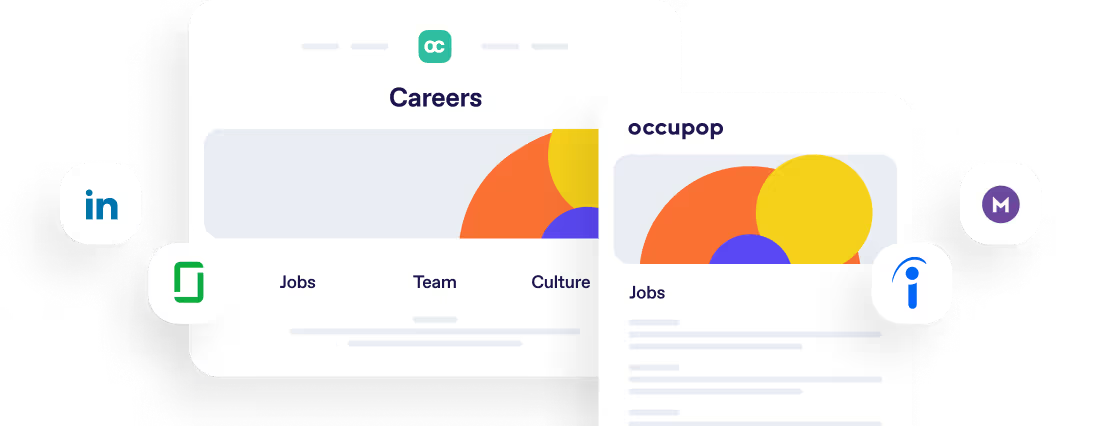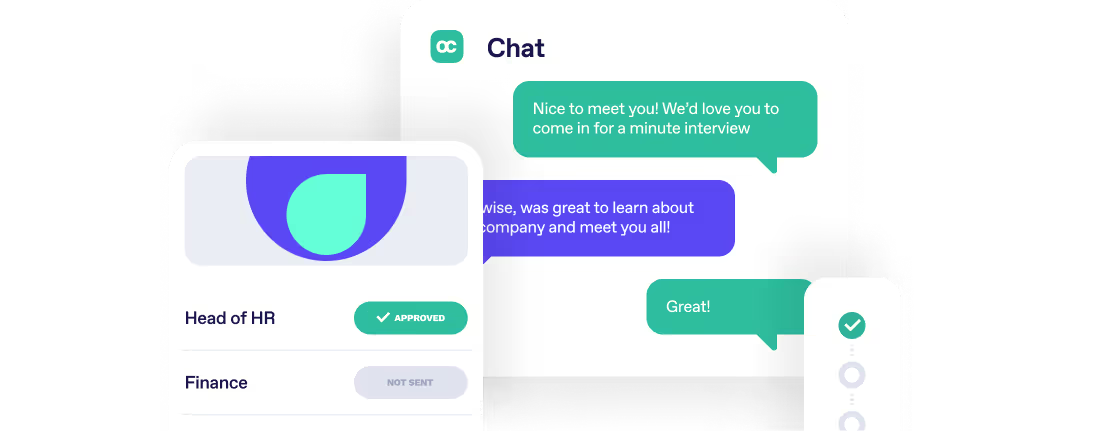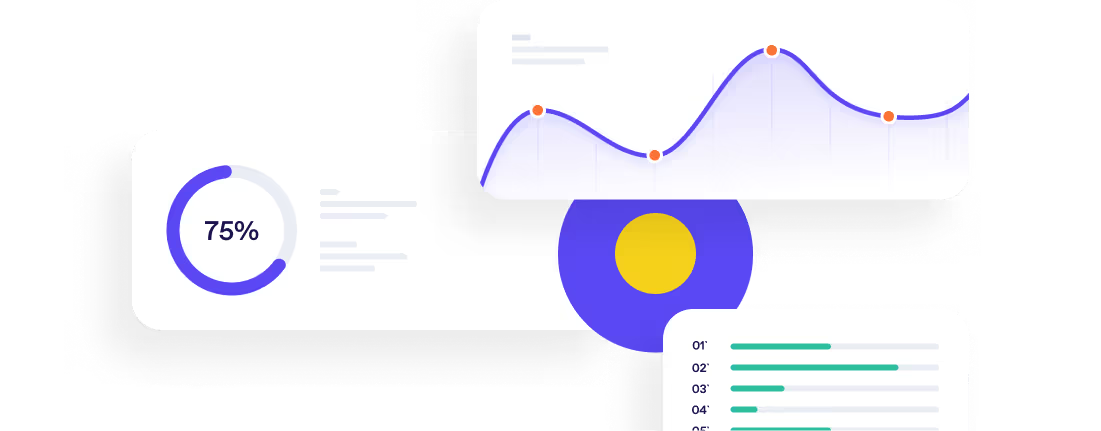Building Diverse Teams: A Guide to Inclusive Recruitment Marketing



Acknowledging the importance of diversity and inclusion in a workforce is crucial for creating a workplace that is innovative, dynamic, and competitive. Diversity encompasses the various traits and characteristics that make people unique, including but not limited to race, gender, ethnicity, age, sexual orientation, and disability. Inclusion refers to the behaviours and social norms that ensure people feel welcomed and supported in all areas of the workplace. Together, these elements create a business ecosystem where everyone, irrespective of their background, can thrive and contribute to the company's goals.
Why is Diversity and Inclusion Important?
Addressing Unconscious Bias
Unconscious biases are subtle, involuntary reactions we have towards others based on our preconceived notions and experiences. In the workplace, these biases can influence hiring, promotions, and daily interactions in ways that disadvantage minority groups. Combating unconscious bias starts with awareness training that helps employees recognise their biases and provides strategies to mitigate them. Moreover, structuring recruitment processes to be as objective as possible, such as using standardised evaluation criteria and incorporating diverse interview panels, can help minimise the impact of these biases. For a deeper dive into managing these biases in recruitment, read our detailed guide on understanding culture fit and recruitment bias.
Creating an Inclusive Company Culture
Creating an inclusive culture requires more than merely a diverse workforce; it necessitates a strategic approach to ensure all employees genuinely feel valued and integrated into the organisational fabric. This involves regular training on diversity and inclusion, transparent communication channels that encourage feedback, and company policies that support equal opportunities for everyone. Leadership must also actively foster this culture, demonstrating a commitment to diversity through their actions and policies.

Benefits of a Diverse Workforce
Decision-making
Teams that are diverse in gender, culture, and experience have been found to make decisions faster and more effectively than homogeneous ones. The varied perspectives brought by a diverse team allow for a broader range of solutions to problems, ensuring that decision-making is robust and comprehensive. This variety prevents "groupthink," a common pitfall where groups with similar backgrounds and experiences might overlook critical issues or alternative strategies. To understand more about how diversity can directly benefit your company, explore our article on the value of building a diverse workforce.
insert-cta
Insights
A workforce that mirrors a diverse customer base can provide invaluable insights into market needs and challenges. These insights enable companies to craft targeted marketing strategies, develop products that appeal to a wider audience, and outmanoeuvre competitors who may not have the same level of insight.
Problem-solving
Diversity fosters creativity and innovation by mixing different perspectives and problem-solving approaches. This blend can lead to novel ideas and solutions that might not have been conceived in a more uniform group. By leveraging the unique backgrounds and experiences of a diverse team, companies can tackle complex challenges more effectively and with greater creativity.

Crafting Inclusive Job Descriptions
Using Appropriate Language
To attract a wide range of candidates, job descriptions must be carefully worded to avoid alienating potential applicants. This means using inclusive, gender-neutral language and avoiding terms that unconsciously cater to a particular demographic. For example, terms like "rockstar" or "ninja" tend to resonate more with younger, male candidates, potentially deterring other qualified individuals.
Highlighting Diversity Initiatives
A job description that openly discusses a company's diversity achievements and ongoing commitments can attract candidates who value inclusivity. This might include mentions of awards, diversity training programmes, or support groups for underrepresented employees. Such details make a position more attractive to individuals looking for an employer that supports and promotes a diverse workplace.
Promoting Flexible Working
Today's job seekers are increasingly looking for roles that offer work-life balance. Promoting aspects such as telecommuting, flexible hours, and family leave policies can make positions appealing to a broader array of applicants, including those with caregiving responsibilities or who live farther from major employment centres.

Reaching Diverse Talent Pools
Affinity Groups
Affinity groups and professional networks focused on specific demographics can be invaluable in reaching diverse candidates. These groups often offer resources, networking opportunities, and job boards that can help employers connect with potential applicants they might not reach through more traditional channels. Learn more about how to effectively use these technologies in our article on why and how to use AI and automation in recruitment.
Diversity-focused Job Boards
There are numerous job boards specifically designed to connect employers with women, people of colour, veterans, and other underrepresented groups. Posting vacancies on these sites can enhance a company's visibility among these populations and show a proactive stance on diversity recruitment.
Local Institutions
Engaging with educational institutions such as community colleges, vocational schools, and minority-serving universities can also be a strategic way to access emerging talent from diverse backgrounds. These institutions often serve a more diverse student body and can act as a direct pipeline for new graduates entering the workforce.
Through understanding and implementing these inclusive recruitment strategies, companies can not only enhance their diversity but also their overall operational success. Occupop's recruitment software simplifies this process, integrating seamlessly with strategies to attract a diverse pool of candidates. Discover how our new DEI reporting feature can aid your diversity efforts.
Summary Points
Summary: The Importance of Diversity and Inclusion in the Workforce
- Defining Diversity and Inclusion: Involves recognizing individual traits like race, gender, and disability, and creating a welcoming workplace.
- Combating Unconscious Bias: Address biases through awareness training and objective recruitment to ensure fair hiring and promotions.
- Creating an Inclusive Company Culture: Foster an inclusive environment through training, transparent communication, and supportive policies.
- Benefits to Decision-Making: Diverse teams bring multiple perspectives, enhancing decision-making and problem-solving.
- Gaining Market Insights: A diverse workforce provides valuable insights into varied customer needs, aiding product development and marketing.
- Enhancing Creativity and Innovation: Mixing different perspectives boosts creativity and leads to innovative solutions.
Simple. Beautiful.
Recruitment Software.
HR updates sent straight to your inbox
You might also like...


Manage your entire hiring process simply, from engagement to management, hiring and onboarding







Simple. Beautiful.
Recruitment Software.
Recruitment Software.






